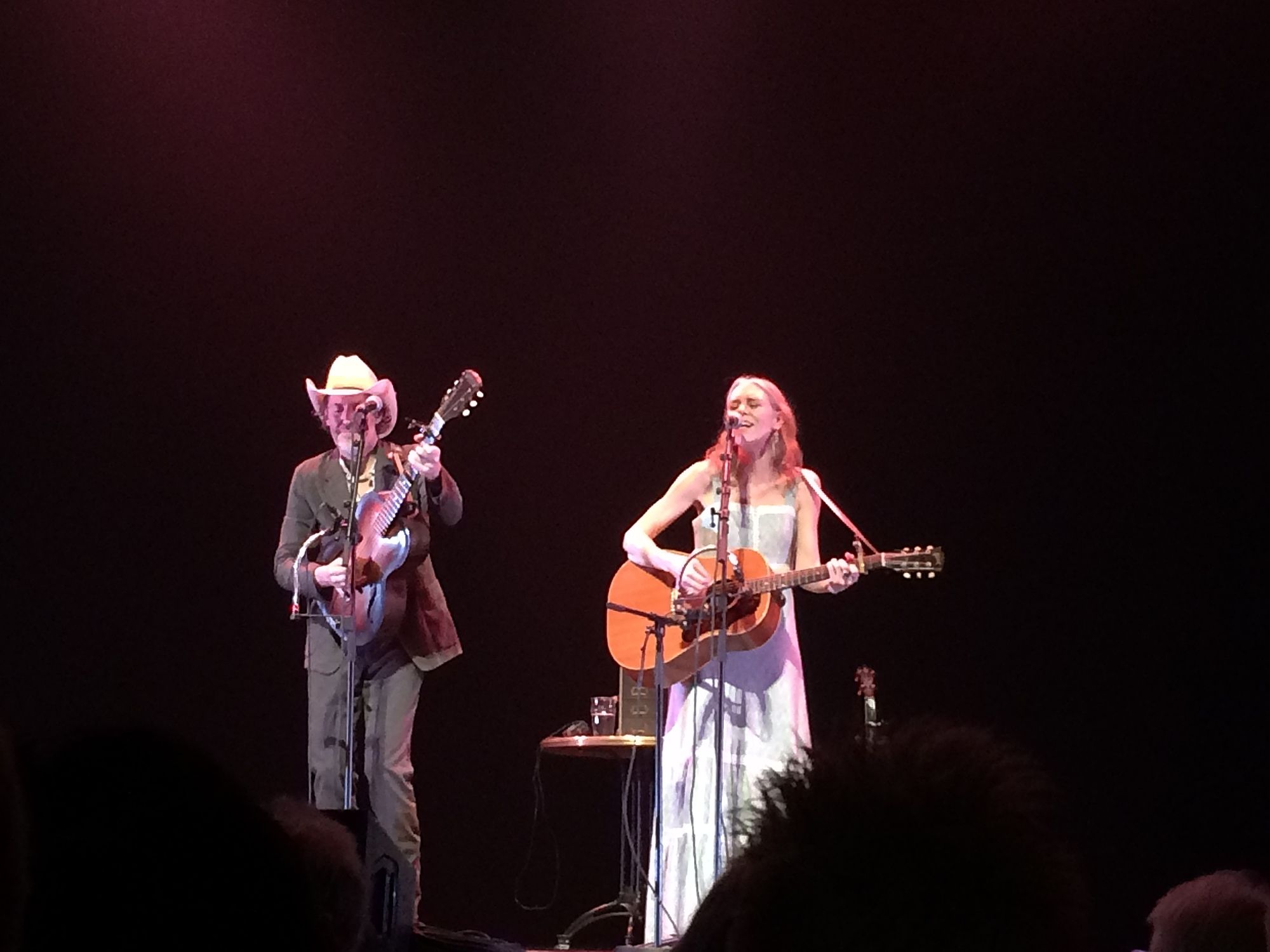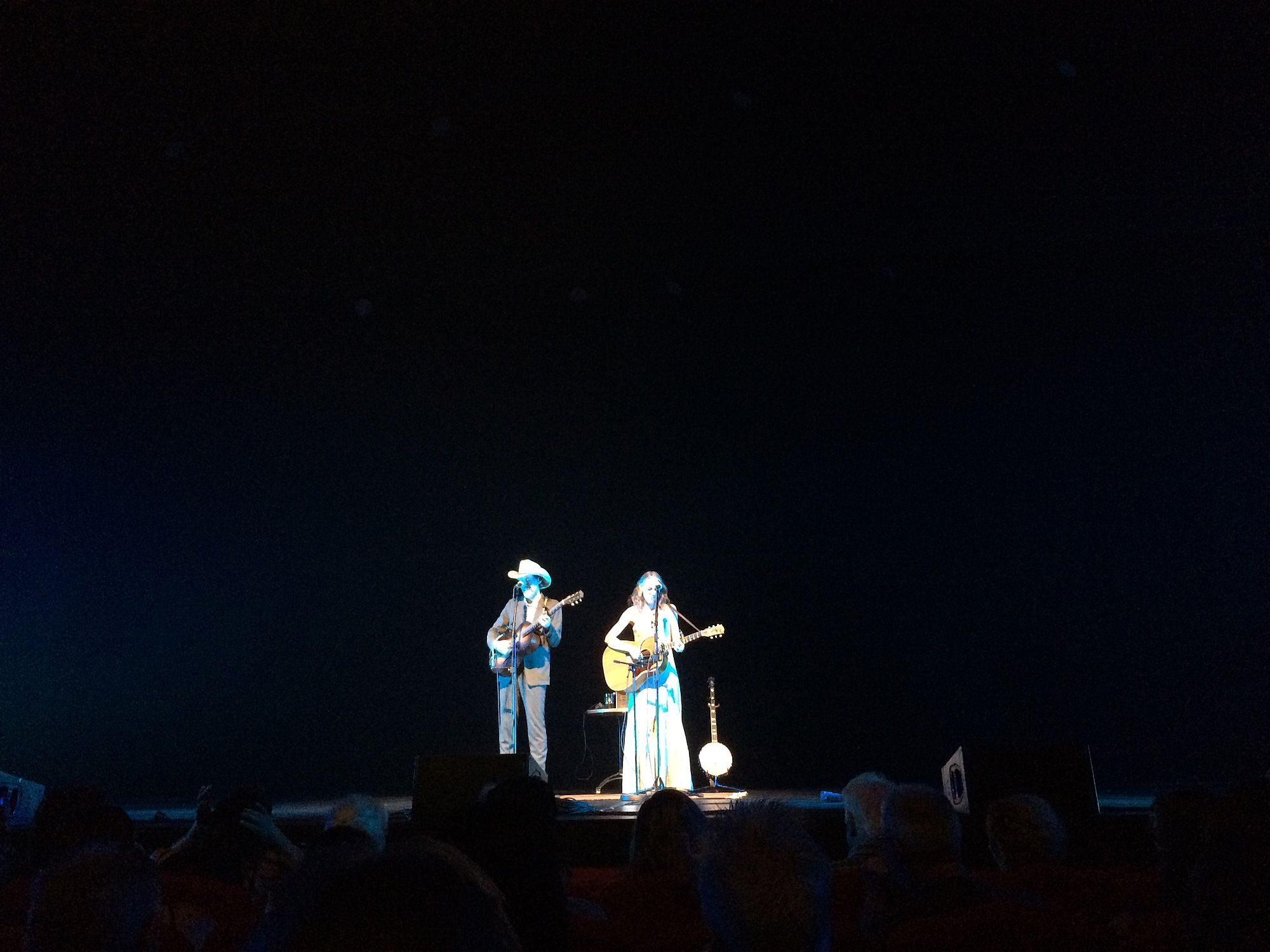Review: Gillian Welch
Last week, Nashville folk musicians Gillian Welch and David Rawlings featured on A Prairie Home Companion, a variety show that carries on the tradition of having live music and storytelling from the early days of radio.
Much like that show, Welch and Rawlings are carrying the torch of a tradition into the digital age. They’re partly responsible for the renaissance of American folk music over the last sixteen years, having featured on the musically iconic Coen brothers film, O Brother, Where Art Thou? and through their collaborations with Americana luminaries Emmylou Harris and Ryan Adams.
But Welch and Rawlings don’t come across as performers commodifying an old sound. They don’t use references to whisky or trains as tropes to legitimise themselves as ‘country’ but, rather, their lyrics show a musical personality more nuanced and devoted to the ancestry of the genre.
Garrison Keillor - host of A Prairie Home Companion - once said he doesn’t like listening to recorded music but is dedicated to music as a live art. I was reminded of that last night at the Civic: it was the most unadulterated live sound I’ve heard on a stage like that. Only the two of them appeared, carrying their aged Gibson guitars. There were no stage techs adjusting microphones. They played the same guitars for the show, occasionally swapping to banjo. Welch charmed the crowd early, saying: “They talk about you. They say you’re a banjo-loving town”.
They stood in front of a couple of condenser microphones. Their guitars weren’t plugged in. What you heard was not an electronic signal of strings but the whole resonance of their old wooden instruments: the air breathing out of them. The dynamic of their sound was not formed by gadgetry, but by movement. A Rawlings guitar melody would fade out as he stepped back and Welch’s voice would emerge into the foreground as she lifted her head to the microphone.
It was the kind of show that has a sacredness where, if you closed your eyes, you could’ve been in a small room with them playing in the corner. Not many shows create that kind of atmosphere, but the Civic has had a few. Ryan Adams, alone on the same stage a few years earlier was a similar experience.
Beginning with favourites like ‘Elvis Presley Blues’ from 2001’s Time (The Revelator), they journeyed through a number of haunting songs like ‘Tennessee’ from 2011’s The Harrow & The Harvest. The most percussive and charming song of the night was ‘Six White Horses’, carried by Rawlings on banjo with Welch ‘hamboning’ - a dance of stomping and leg-slapping.
‘Time (The Revelator)’ was a clear highlight of the evening, reflected in the still, silent attention of the packed theatre, who gave a standing ovation at the end of the night and forced a legitimate encore after the usual manufactured one.
The two songs of the final encore were a fitting departure: after some unplanned decision making, they played ‘Orphan Girl’, the first song of Welch’s debut album Revival which came out twenty years ago. The final song ended the show as it began - in the spirit of the weekly Nashville concert Grand Ole Opry - with the Cash and Carter duet ‘Jackson’. The crowd stood again, the Nashville couple promised to return, and then they were gone.
I hadn’t been to an international show for a long time until this month, when I’ve seen three acts that have reminded me of the brilliance of American music: Texas soul singer Leon Bridges, Philadelphia’s Kurt Vile, and Nashville’s Gillian Welch and David Rawlings. In their own voices, these artists have shown that the interwoven genres of soul, rock and country in the States’ musical lineage are alive and well.
Gillian Welch and Dave Rawlings
Thursday 28th January
Civic Theatre, Auckland


